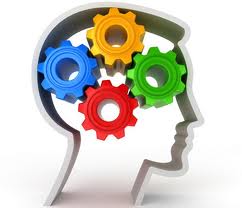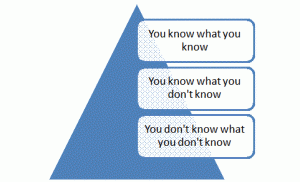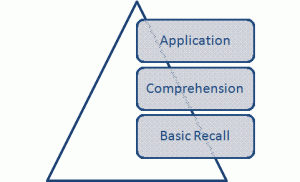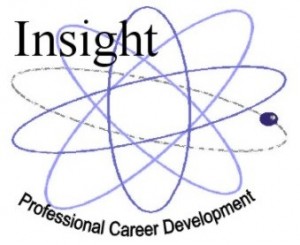Learn new skills- improve memory
So now that we know about basic recall and memory from our last post, here are some tips and guidelines to improve your memory and basic recall.
Learn new skills by paying attention
You can only remember what you have learned and you
can’t recall it if you have not paid attention to it, or made a strong effort to
encode it into your brain. “That what you give energy too grows.” The more time and mental energy you give something, the more you remember it. It takes about eight seconds of intent focus to process a piece of information through your hippocampus and into the appropriate memory center. That means you can’t do more than one thing when you need to concentrate! If you distract easily, try to absorb the information in a
quiet place where you won’t be interrupted.
Tailor information you want to retain to your learning style. I’m very visual, and most people are visual learners; they learn best by reading or seeing what it is they have to know. But some are auditory learners who learn better by listening. They might
benefit by recording information they need and listening to it until they
remember it.
Learn new skills-involve your senses
Involve all your senses. Even if you’re a visual learner, read out loud what you want to
remember- if you can recite it rhythmically, even better. Try to relate
information to colors, textures, smells and tastes. The physical act of
rewriting information can help imprint it onto your brain. Relate information
to what you already know. Connect new data to information you already remember,
whether it’s new material that builds on previous knowledge, or something as
simple as an address of someone who lives on a street where you already know
someone.
Learn new skills-all about organization for improving memory
Organize information. Do you want to remember it? Write it down first. Write things down in note pads and datebooks and on calendars; take notes on more complex material and reorganize the notes into categories later. Use both words and pictures in learning information. Understand and be able to interpret complex material. For more complex material, focus on understanding basic ideas rather than memorizing isolated details. Be able to explain it to someone else in your own words. If you can’t summarize it our loud, that means you really have not absorbed or understand it completely.
Learn new skills-practice make perfect
Rehearse information frequently and “over-learn”. Review what you’ve learned the same day you learn it, and at intervals thereafter for the next 7-10 days. What
researchers call “spaced rehearsal” is more effective than “cramming.” If
you’re able to “over-learn” information so that recalling it becomes second
nature, so much the better.
Be interested and motivated, and keep a positive mental perspective. Tell yourself that you want to learn what you need to remember, and that you can learn and remember
it. Telling yourself you have a bad memory actually hampers the ability of your
brain to remember, while positive mental feedback sets up an expectation of
success.
Learn new skills- develop a system for improving memory
I use these like a religious person uses a bible. I have several go to systems when I absolutely have to remember something…and they work. Mnemonic devices to improve memory. Mnemonics (the initial “m” is silent) are helpful tips of any kind that help us remember something, usually by causing us to associate the information we want to remember with a visual image, a sentence, or a word. Sometimes they are also called moronic systems. Whatever you pay attention too, you will be better able to recall it so these systems put you on the right track to recall.
Learn new skills- common devices for memory
Common types of mnemonic devices include:
Visual images – a microphone to remember the name “Mike,” a rose for “Rosie.” Use
positive, pleasant images, because the brain often blocks out unpleasant ones,
and make them vivid, colorful, and three-dimensional — they’ll be easier to
remember. Made up acronyms about the subject matter are great moronic memory
tools to help you recall.
Sentences in which the first letter of each word is part of or represents the initial of
what you want to remember. Millions of musicians, for example, first memorized
the lines of the treble staff with the sentence “Every good boy does fine” (or
“deserves favor”), representing the notes E, G, B, D, and F. Medical students
often learn groups of nerves, bones, and other anatomical features using
nonsense sentences.
Acronyms, which are initials that creates pronounceable words. The spaces between the lines on the treble staff, for example, are F, A, C, and E: FACE.
Rhymes and alliteration: remember learning “30 days hath September, April, June, and
November”? A hefty guy named Robert can be remembered as “Big Bob” and a smiley
co-worker as “Perky Pat” (though it might be best to keep such names to
yourself).
Jokes or even off-color associations using facts, figures, and names you need to recall,
because funny or peculiar things are easier to remember than mundane images.
Learn new skills-in bite size pieces
Ever hear of the magic of 7? That’s the largest number most people can remember with ease, and why a phone number is 7 digits long. “Chunking” information; that is, arranging a long list in smaller units or categories that are easier to remember. If you can reel off your Social Security number without looking at it, that’s probably because it’s arranged in groups of 3, 2, and 4 digits, not a string of 9. “Method of loci”: This is an ancient and effective way of remembering a lot of material, such as a speech. You associate each part of what you have to remember with a landmark in a route you know well, such as your commute to work.
When it comes to improved memory, hopefully learn new skills gave you some great insight.






